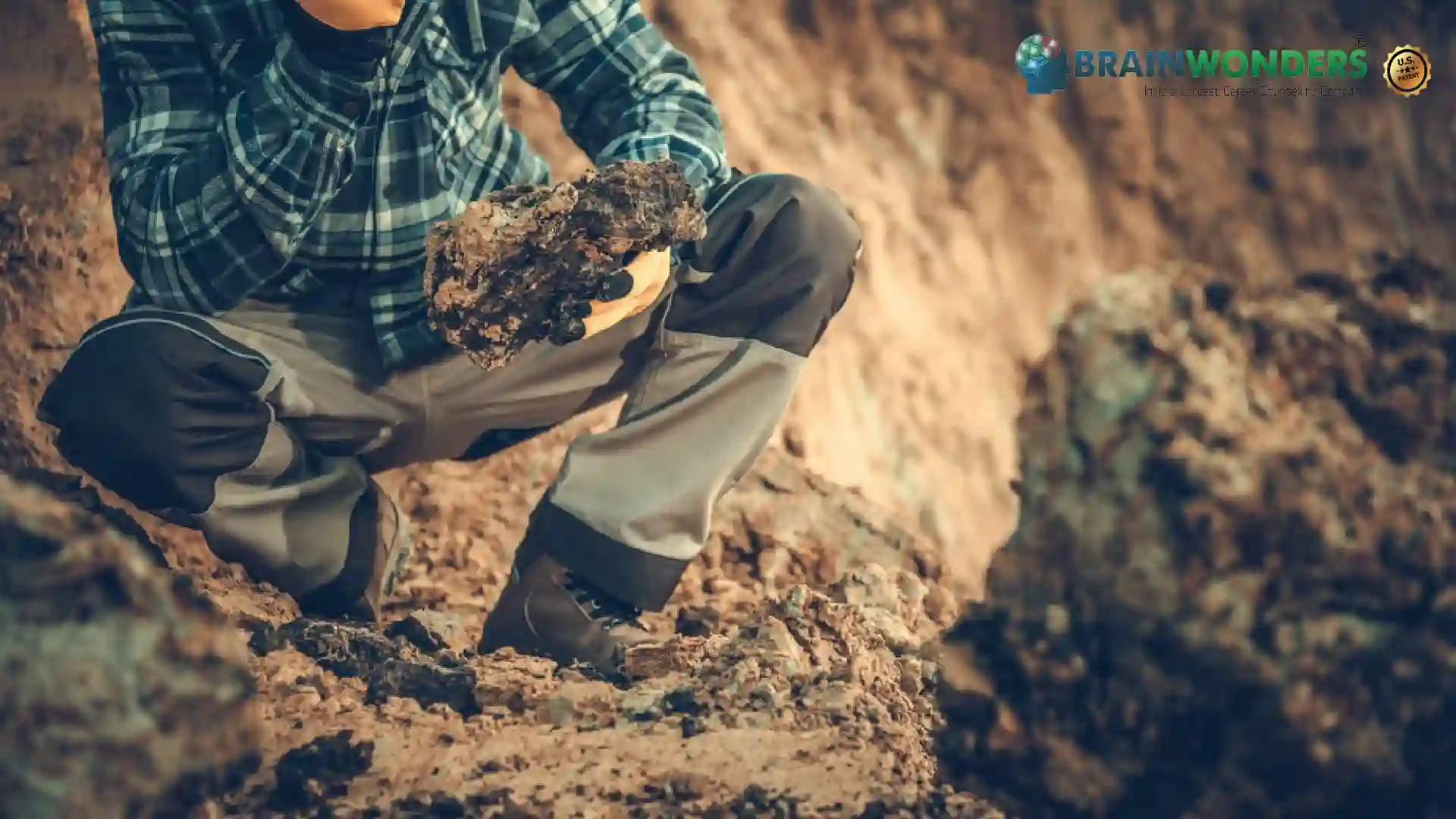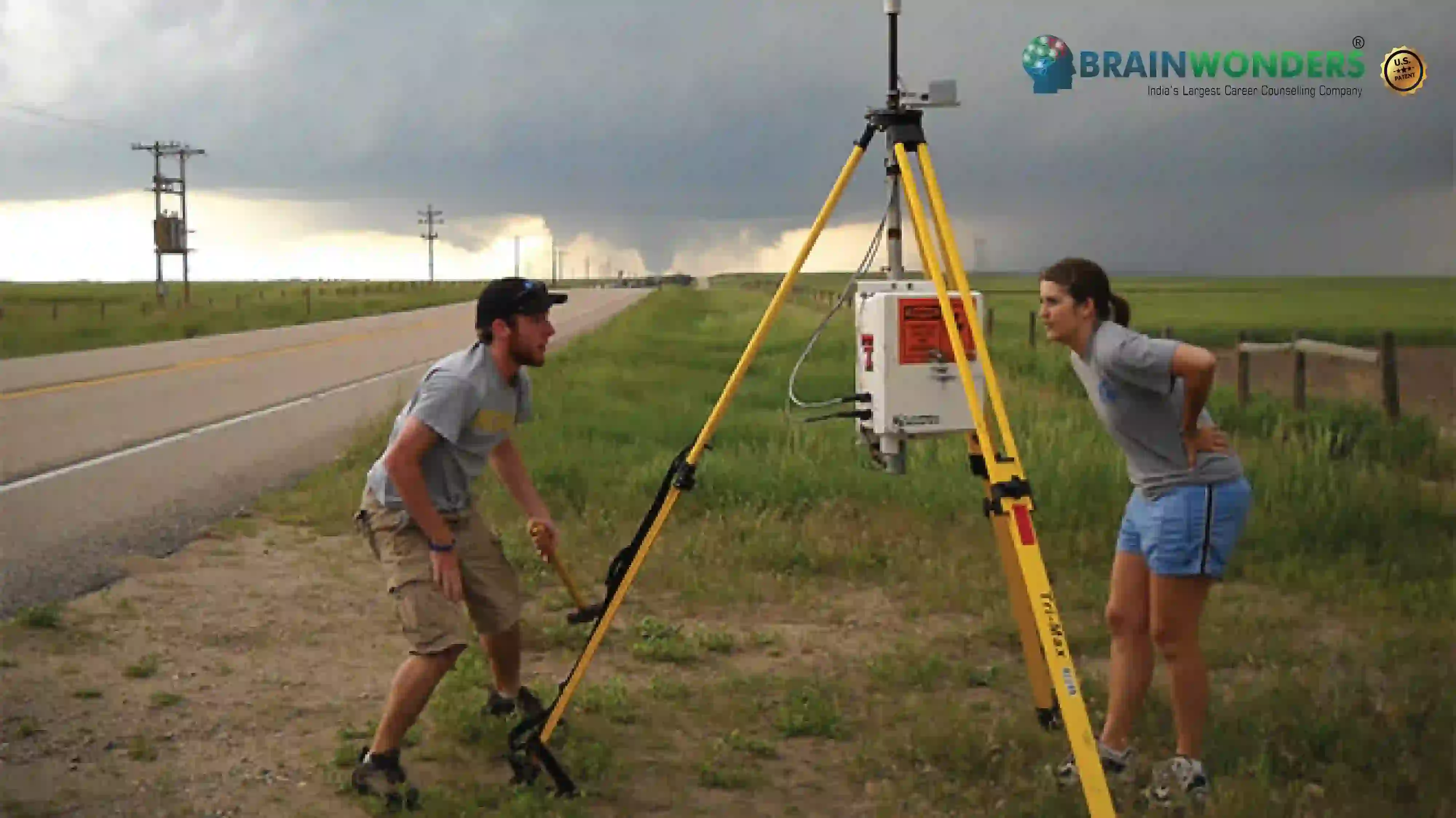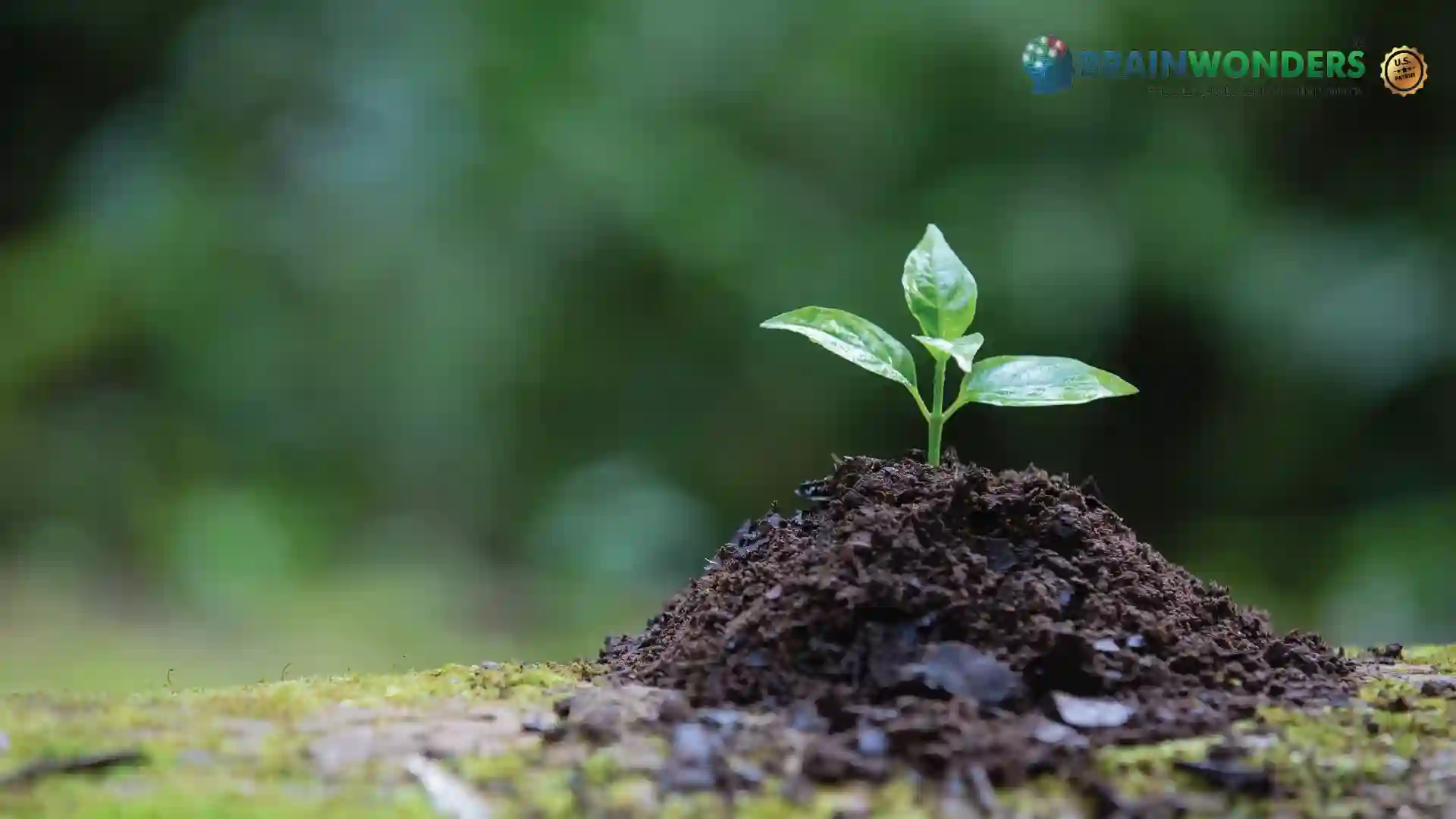How to become a Geologist
Overview, Courses, Exam, Colleges, Pathways, Salary

Overview
Who is Geologist ?
Geologists are those who research the earth's physical structures, composition, and processes that affect it. This includes the exterior and interior surface of the earth, which requires the understanding and application of multiple sciences, including physics, chemistry, mathematics, and biology as well. They are eager to comprehend the production of these materials and the processes that led to them and situate them within the framework of geological history. This involves the study of the earth's occupants and the evolution of life on the planet. They are focused on studying the earth's processes, such as landslides, volcano eruptions, floods; earth's materials, such as natural resources of petroleum, metals, oil, and rocks; and the earth's history, such as climatic changes through time.
They follow an evidence-based approach and deductive reasoning methods to understand and resolve geological problems, including climate change, natural disasters, depletion of natural resources etc. Using their understanding of the geological phenomena, they can also foresee the occurrence of events and how specific processes may have consequences in the future.
Typical day at work
What does Geologist do?
- Plan and conduct the field studies related to geological phenomena
- Determine or develop methods for collecting field data for geological analysis
- Collect field samples of geological, geochemical, and geophysical phenomena using appropriate techniques
- Conduct laboratory tests to analyse samples collected through fieldwork
- Prepare reports and digital databases for the information collected through the field data
- Produce modelling programs for geological phenomena
- Determine the suitability of specified locations for construction projects
- Generate reports regarding the economic and environmental impact of potential geological exploratory projects
- Prepare geologic and topographic maps using data collected from fieldwork and laboratory research
- Communicate the findings from field studies through presentations at conferences or publishing research papers
Abilities and Aptitude needed
What are the skills, abilities & aptitude needed to become Geologist?
A geologist would be well-versed in geological phenomena and the many techniques used to explore them. Their communication skills, both verbal and written, are essential for liaising with management and employees, presenting their results to the public and fellow professionals, and writing reliable reports about their fieldwork. Since much of their tasks require fieldwork, a geologist should possess the necessary physical stamina as well as expertise in carrying out field and laboratory investigations.
Technical knowledge regarding geological mapping, as well as familiarity with using relevant software and specialised devices for data collection, analysis, and modelling, is crucial for a geologist. They should be highly detail-oriented with an analytical mind with strong research skills. Knowledge of and adherence to the health and safety standards and procedures is paramount for a geologist to conduct fieldwork. They should have strong leadership abilities and the capacity to collaborate successfully as part of a multidisciplinary team. Finally, geologists must have strong problem-solving abilities and the capacity to think critically and laterally.
Salary
Salary for Geologist?
Salary information for a Geologist in India:
- Minimum Monthly Salary: For entry-level Geologists or those working on low-budget projects, the monthly salary may range from INR 20,000 to INR 40,000, especially when starting their careers.
- Maximum Monthly Salary: Established and highly experienced Geologists with significant expertise in senior positions or specialized fields can earn a maximum monthly salary of INR 1,00,000 to INR 2,00,000 or more.
- Annual Salary: The annual salary of a Geologist can be from INR 3,00,000 to several lakhs, depending on their level of experience, the industry they work in (e.g., mining, oil and gas, environmental consulting), and their expertise.
- Highest Paying Job and Scope: The highest-paying jobs for Geologists are often found in industries such as mining, oil and gas exploration, and geotechnical engineering. Geologists involved in exploring and identifying valuable mineral and energy resources can command higher salaries. Additionally, geologists with expertise in niche areas like hydrogeology, geothermal energy, geological surveys and mapping may also have lucrative opportunities.The scope for Geologists in India is promising, especially with the increasing demand for natural resources exploration, environmental assessment, and geotechnical engineering projects. Geologists contribute to various industries, including mineral exploration, oil and gas, environmental consulting, research, and academia.
Pathways
How to become an Geologist?
Entrance Exam
Entrance Exam for Geologist ?
Courses
Which course I can pursue?
Best Colleges
Which are the best colleges to attend to become an Geologist?
Industries
Which Industries are open for Geologist?
Geologists have diverse career opportunities across various industries where their expertise in studying the Earth's structure, rocks, minerals, and natural resources is highly valued. Some of the industries open for geologists include:
- Mining and Mineral Exploration: Geologists play a crucial role in identifying and assessing mineral deposits, conducting geological surveys, and managing mining operations.
- Oil and Gas Exploration: Geologists are employed in exploring and producing oil and natural gas, studying subsurface rock formations to locate and assess hydrocarbon reserves.
- Environmental Consulting and Remediation: Geologists work on environmental projects, including site assessments, soil and water quality analysis, and remediation of contaminated sites.
- Geotechnical Engineering: Geologists contribute to geotechnical investigations, assessing soil and rock properties for engineering projects like building foundations, tunnels, and dams.
- Geothermal Energy: Geologists explore and develop geothermal energy sources, utilizing heat from the Earth's interior for electricity generation.
- Hydrogeology and Water Resources: Geologists study groundwater flow and availability, helping to manage water resources and address issues like water scarcity and pollution.
- Geological Surveys and Mapping: Geologists work for government agencies and private firms to conduct geological surveys and create geological maps.
- Environmental Compliance and Regulation: Geologists may be involved in assessing the environmental impact of projects and ensuring compliance with environmental regulations.
- Research and Academia: Geologists contribute to scientific research and work as educators in universities and research institutions.
- Geoscience Technology and Software: Geologists develop and use specialized software and technology for data analysis, modelling, and exploration.
- Natural Resource Management: Geologists manage natural resources, including land use planning and conservation efforts.
- Volcanology and Seismology: Geologists specialize in studying volcanic activity and earthquakes, working with observatories and research institutions.
internship
Are there internships available for Geologist?
Internships for geologists can provide valuable hands-on experience and exposure to real-world geological work. Here are some potential sources to find internships as a geologist:
- Geological Survey Organizations: Government geological survey agencies often offer internship programs to students and aspiring geologists to work on various geological projects and research.
- Mining Companies: Many mining companies and mineral exploration firms provide internships for geology students or recent graduates to gain experience in fieldwork, data analysis, and geological mapping.
- Oil and Gas Companies: Energy companies in the oil and gas sector may offer internships for geologists to assist in exploration activities, reservoir analysis, and geophysical studies.
- Environmental Consulting Firms: Environmental firms hire geology interns to work on projects related to environmental assessments, site investigations, and remediation projects.
- Research Institutions and Universities: Geology departments at research institutions and universities often have internship opportunities for students interested in geological research and laboratory work.
- Geotechnical Engineering Firms: Geotechnical companies hire geology interns to assist with site investigations, soil and rock testing, and geological hazard assessments.
- Non-Profit Organizations: Some non-profit organizations focused on environmental conservation, and geological research may offer internships for geologists.
- State and National Parks: Parks and recreation departments may have internship programs for geologists to conduct geological surveys and research in park areas.
- Volcanology and Seismology Observatories: Institutions studying volcanoes and seismic activities may offer internships for geologists interested in these specialized fields.
- Geological Software Companies: Companies developing geological software and tools may have internships for geologists to assist with product testing and development.
Career outlook
What does the future look like for Geologist?
The long-term job outlook of geologists is positive as their demand is driven by the rise in consumption of natural resources as well as the increased importance of 'green energy' and environmental protection today. They can work in a variety of contexts, including the corporate and public sectors, as well as non-profit groups. This includes environmental consulting companies, manufacturing companies, petroleum and mining companies, engineering firms, natural reserve companies and construction companies, to name a few. They can also work in academia as academic researchers or professors at universities and colleges.
Some of the areas that a geologist can choose to specialise in include palaeontology, volcanology, hydrology, mineralogy, geochemistry, geophysics, oceanography, seismology, petroleum geology, sedimentology, economic geology and geological engineering, to name a few. A geologist shall be required to work outdoors frequently as fieldwork is a significant part of their job, although they also work in office settings and laboratories.



